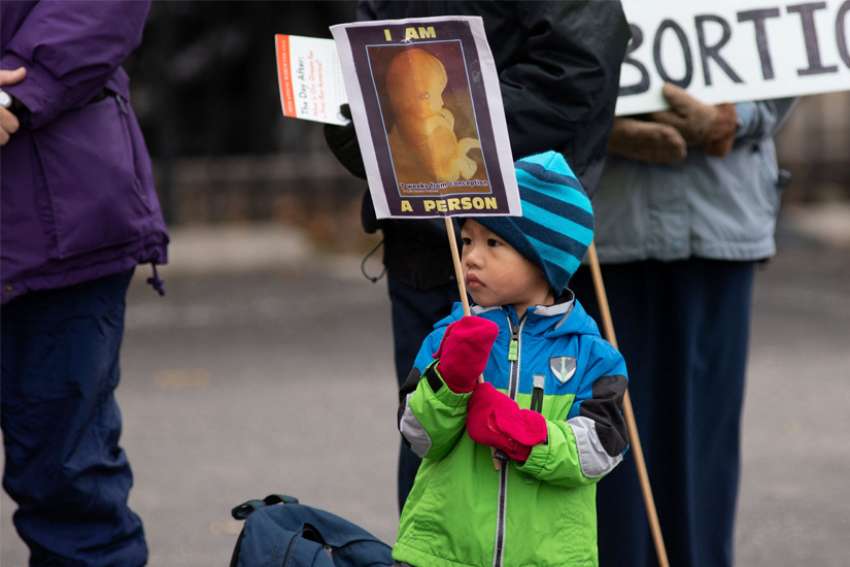Canada has not had an abortion law since Jan. 28, 1988, when the Supreme Court of Canada delivered its decision in the R v Morgentaler case. In a 5-2 vote, the court ruled the abortion provision in the Criminal Code violated section 7 of the Canadian Charter of Rights and Freedom, which concerns the right to life, liberty and security of each citizen.
What that decision did was decriminalize abortion and left it in the hands of Parliament to come up with a new law. Only one strong attempt was made to reinstitute abortion restrictions in the past 34 years. It was Bill C-43, introduced on Nov. 3, 1989 by Brian Mulroney’s Progressive Conservative government. This bill would have recriminalized abortion, unless it was induced because a physician deemed the woman’s physical, mental or psychological health was at risk.
Bill C-43 passed the House of Commons upon third reading with a 140-131 vote on May 29, 1990 but was defeated in the Senate.
Still, that has not kept Prime Minister Justin Trudeau from continually stating that Canadian women have “a right to a safe and legal abortion,” as he tweeted May 3.
Bernard Dickens, professor emeritus of health law and policy at the University of Toronto, takes issue with Trudeau’s tweet about women having a “right” to an abortion. He told the CBC “that’s going too far” as the Supreme Court of Canada has never stated a woman has such a constitutional right.
Dickens, appointed to the Order of Canada in 2006, told The Catholic Register that while we cannot entirely “rule out an attempt to legislate a crime of abortion, it would have to be on very narrow grounds.”
A co-director of the U of T’s International Reproductive and Sexual Health Law Program alongside his wife Rebecca Cook, Dickens explained how the spectrum of abortion access in Canada expanded through the years into a big tent.
“You also had social well-being. Because of the derivation of Canada’s criminal law, the court came to look at what was happening in England, and the United Kingdom generally, and their 1967 (Abortion Act),” he said. “It allows termination of pregnancy if there are effects on the health and upbringing of the other young dependent children in the care of the woman.”
Dickens said the World Health Organization’s Social Determinants of Health (SDH) has influenced abortion law. Introduced in the late 1990s, and fleshed out through a global commission from 2005-08, the SDH are 10 non-medical factors that “influence health outcomes and equity in positive and negative ways.” Education, employment status, food insecurity and social inclusion and non-discrimination are four of these determinants.
“There are now a wide spectrum of conditions that can be jeopardized by pregnancy, and that would justify abortion,” said Dickens.
Dickens predicts Roe v. Wade’s overturning will create a “feast for lawyers,” because some American states’ desire to apply abortion prohibitions beyond its jurisdiction will spark litigation battles.
“That will raise interesting legal questions as the U.S. constitution requires states give what’s described as ‘full faith and credit’ to decisions in other state jurisdictions,” said Dickens.
Texas Senate Bill 8 (Texas Heartbeat Act), passed last September, is a specific example. According to the law, a private citizen can sue an individual who induces an abortion or aids and abets the procedure in violation of the state’s abortion restrictions.
Dickens said the Texas law would enable a citizen to sue the Canadian physician who performs an abortion for a Texan seeking the procedure out-of-state.
Minister of Families, Children and Social Development Karina Gould has already announced that American women needing access to a cross-border abortion would not be denied.
Tabitha Ewert, legal counsel for the grassroots pro-life organization We Need a Law, suggested one Canadian ripple effect of Roe v. Wade is that it could spark more discussions about abortion in the public square. She specifically cited Trudeau’s tweet and said it provided a visible forum for anti-abortion advocates to respond with cogent counterpoints.


